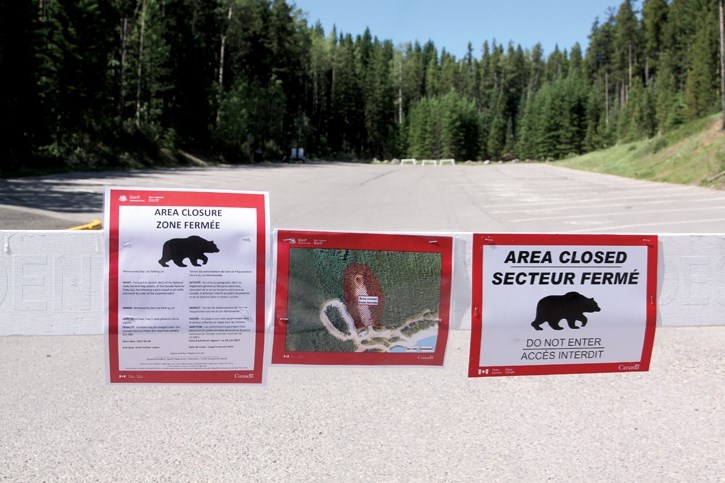BANFF – A prominent Banff visitor experience company has been fined $10,000 in court as a result of pleading guilty to charges under the National Parks Act after a female black bear got into garbage at one of its attractions.
Brewster, also known as Pursuit, entered the guilty plea to a charge of contravening the regulations of the Parks Act in relation to an incident that occurred on June 26, 2017.
According to an agreed statement of facts read into the record by Federal Crown prosecutor Anita Szabo last Wednesday (Sept. 19), the company failed to store garbage in proper containers at its Black Anchor Snack Shop located near Lake Minnewanka.
Szabo told Judge Les Grieve that on that particular date, Parks Canada staff were called to the commercial operation to investigate a report of a black bear accessing garbage.
“Parks Canada staff were subsequently required to capture, radio collar, and move the bear out of the leasehold and public area,” she said. “Though no permanent harm to the bear occurred, wildlife capture and immobilization presents serious risks of injury or death to wildlife and are also high-risk activities for Parks Canada staff.”
For weeks following the relocation, Szabo told the judge, wildlife specialists had to continue to use aversive conditioning techniques.
While they were on site, she added, they observed garbage on the ground next to the snack shack. The garbage was not properly stored in a secured container, but was inside a recycling bin that had been tipped over easily by the bruin.
Szabo told court that Brewster’s lease agreement with the federal agency to operate commercially in that location, and the National Parks of Canada Garbage Regulations, set out clear expectations around how garbage should and should not be stored.
The proper storage of garbage is critical to conserve and protect wildlife in the national park, she added.
“Improper storage can lead to wildlife becoming habituated and thus posing a risk to people,” Szabo said. “Developing food conditioned behaviour in bears can affect the safety of staff and the public. This risk is increased in areas with high rates of public visitation, like (Minnewanka).”
The judge also heard the company was cooperative with the investigation and has worked diligently to improve its recycling disposal program to prevent another incident from occurring. Those efforts include installing a new wildlife secure storage container immediately following the incident, collaborating with Parks to implement a wildlife smart, permanent recycling solution and creating a new program for staff to inspect the location daily to confirm standards are maintained.
Pursuit manager of communications Tanya Otis provided a statement to the Outlook with respect to the court decision.
“In June 2017 a black bear gained access to a recycling bin that had improperly disposed food in it,” Otis wrote in an email. “Since then, we have worked diligently to improve our garbage and recycling disposal best practices.
“With a continued emphasis in finding new and innovative ways to enhance our current environmental stewardship initiatives, and a 126-year track record of exhibiting responsible tourism within our national park, we remain committed to collaborating with Parks Canada to prevent a similar incident moving forward.”




